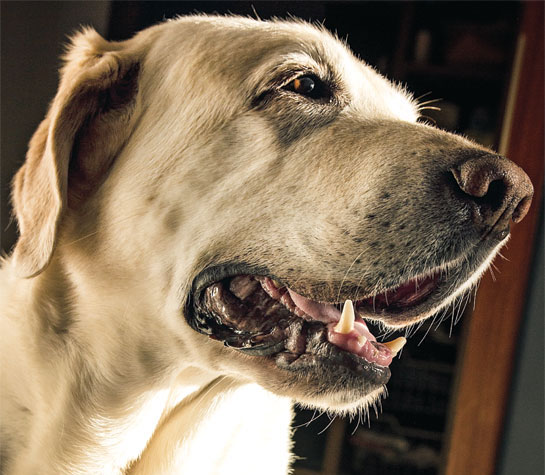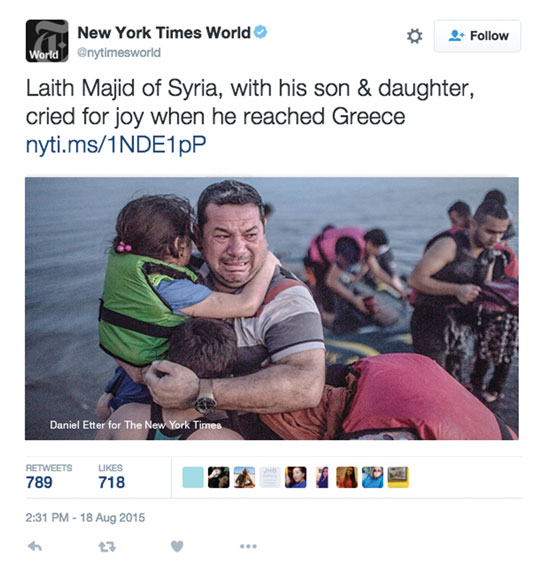
Here’s the truth: I don’t love my neighbors. Neither do I like them. In fact, I simply can’t bear them. Every second spent in proximity to them diminishes the quality of my life. And I find this deeply troubling given that I regularly stand at the front of a university classroom and talk to students about what it means to love one’s neighbor, what it means to be ethically responsible human beings in a world that grows madder and madder. It’s even more distressing given that I lecture regularly about the imperative of seeing the refugee, the stranger, the foreigner — as the neighbor.
I want to love my neighbors — truly, I do. But it seems that desire does not always crystallize into reality. My fantasy of good intentions is hardly compatible with the state of my heart. And I can’t help but wonder whether the impulses that have guided my experience with my proximate neighbors have become a touchstone for my capacity to care for those neighbors who are not so geographically close.
The impending arrival of Pesach — a week of remembering our own historical and symbolic exile — makes such questions even more pronounced. Why do we fill that fifth symbolic cup with wine for Elijah, and for whom do we really open the door?
My husband and I moved into the upstairs unit of a lovely Beverly Hills duplex nearly five years ago. Our downstairs neighbors introduced themselves to us quickly, the woman regularly offering us delicious baked goods and homemade granola. We were pleased to find that, despite their professed love of bacon, they were Jews, just like us. We shared Shabbat dinners and family celebrations with our neighbors. When my baby was sick while my husband was out of town, they drove to the pharmacy to get medicine for him and even helped me administer it. Having raised two children of their own, they had been where I was only beginning to tread. We were grateful for them.
And because we were grateful, we overlooked things like dog excrement (they had two unruly dogs, each well more than 100 pounds) in our shared backyard nearly every time we tried to use it. Let’s not make a fuss, I would say to my husband — they are good to us, and we don’t need to use the backyard (this, of course, was before we had an energetic 3-year-old). We told ourselves that it was no big deal that they wanted to use the driveway to park their cars, while we parked on the street.
 But when my son was born and I struggled getting into the house with the weight of a new baby and all the accompaniments, they offered to let us share the driveway. “See?” I said to my husband. “If you don’t put people in a position to be defensive or territorial, they will be generous. They will do the right thing.” He was not as certain. Perhaps he had a more innate understanding of the disconnect between the ideals to which we aspire and our behavior in reality.
But when my son was born and I struggled getting into the house with the weight of a new baby and all the accompaniments, they offered to let us share the driveway. “See?” I said to my husband. “If you don’t put people in a position to be defensive or territorial, they will be generous. They will do the right thing.” He was not as certain. Perhaps he had a more innate understanding of the disconnect between the ideals to which we aspire and our behavior in reality.
Months later, my husband was bitten badly by one of our neighbors’ dogs. They apologized profusely and told us they understood if we needed to call animal control. “No,” I said. “You are our friends, our neighbors, and I know that you love your dog. I know that you guys will do what needs to be done here so that we can safely use our backyard.” My words were arguably ambiguous, but my meaning was clear: Your dogs shouldn’t be in a shared backyard if they are going to attack people, but I leave it to you to do the right thing. I fully expected that our generosity, given that this was the dog’s second attack (he had severely bitten a child a year ago), would be returned.
To say that it wasn’t is an understatement. The dogs continued to run free in the backyard, while we remained confined to our home. We grew resentful. We started to hate our neighbors. And as our animosity grew, we finally began to demand common courtesies that we should have requested at the beginning: Please clean up after your dogs; please share the driveway; please don’t slam the door. The list continued indefinitely. No matter how politely we made our requests known, the relationship had soured, and they were not inclined to live peacefully with us.
Things did not end well with our neighbors. Nothing was ever resolved. No relationship was reclaimed. They moved out, and so did we.
As I finish writing this piece, which I began months ago and then abandoned, I am looking out of the window of my office in our new home in the canyon — a home tucked away near the top of a hill. It’s quiet. We don’t have to share anything with anyone. In fact, the street is so quiet that we hardly see any of our new neighbors. Rarely do we have to wave hello or exchange pleasantries. It concerns me that this feels most natural, most right — the distancing of ourselves from neighbors, the narrowing of possibilities for friendship.
With the threat of dog bites and slamming doors lifted, there is time to think. And I can’t help but consider what really was the reason for the collapse of our relationship with our neighbors — which, given how close we once were, still pains and baffles me.
But I see it now. It occurs to me that I might be the most to blame. I was reluctant to set boundaries with them in the beginning, because I wanted to be seen in a certain light. I wanted to appear kind and easygoing. I wanted to make friends and have a meaningful relationship with the people with whom we shared walls.
I wonder now how it would’ve turned out if I had laid better groundwork in the beginning — if we had expressed our early dismay at seeing our shared backyard overrun by animals, rather than let them have it for years only to suddenly change our tune after we had a toddler who needed to play in the backyard. I wonder how differently things would’ve turned out if, instead of faking a smile and laughing when one of the dogs jumped and clawed at me until my legs bled underneath my pants, I had been honest. But I wanted to be liked. I suppose I was just playing at being a good neighbor. And I suspect I got it all wrong.
The topic of neighbors is one that is important to much of my academic work, and so it rarely leaves my mind, which is why my inability to make something work with my neighbors is a bit of a personal irritant. As I recently spoke to my literature students about refugees, suggesting that they too are our neighbors, my own personal situation haunted my lecture. And yet the narrative of the crumbling relationship with my neighbors always brings me back to the topic of refugees and of our responsibility to them. Given the pervasiveness of the issue in the media and in much of our current political discourse, I suppose it’s impossible not to. And Pesach, each year, is the time when we are called to remember that we were once foreigners in a land not our own. As part of this crucial Jewish memory, we’re called to care for both neighbors and strangers. But what does it really mean to respond to this admonition?
I keep seeing the face of a man, holding his children close — they’re all wearing life jackets; it’s an image most of us have seen. They’re refugees from Syria. The man is clearly anguished as he holds his children. Like me, he just wants to know that he can keep his children safe. Nothing else matters. This is what I read, unmistakably, in his expression.

I see this man’s face — the photo is one of many that have gone viral — and I believe that I can do whatever it takes, that I can open my heart and my home and my borders to him and his little ones. I imagine that once they are here, I can show them how welcoming and compassionate we are. I believe that I can love someone I know nothing about — whose religion, language, culture and customs are not mine.
Yet I cannot love my very own neighbors, those in closest proximity to me, who are like me in so many ways, even though they have shown me love in the past. I find this deeply troubling, and I’m sure that I am not alone in my impulse to make abstract gestures of compassion that I can’t promise will extend beyond gestures.
I can’t help but wonder if this is a uniquely American impulse — this desire to show the world something, to prove that we are who we say we are. My initial generous behavior toward my neighbors was not really about them; it was about me. It was about wanting to be liked.
Maybe America, too, wants to be liked, to be seen in a certain light — to carry on our legacy of taking in the tired, the poor, the homeless, the “huddled masses yearning to breathe free,” the “wretched refuse” of our teeming shores. But maybe we can’t follow through. Or at least, maybe we don’t follow through often enough. Perhaps the spirit of our generosity is tainted with anxieties about who we are and what people think of us.
We want to take on the world, to take in the world and the denizens of suffering that get lost from time to time. We fall in love with the idea of being the savior to the world, with the idea that we are big enough and brave enough to reach our arms across the ocean and take in all of the suffering refugees. And sometimes we do this — sometimes we do the right thing. But our compassion always seems to expire once we are no longer receiving attention for it.
I recently co-edited a book that includes an excerpt from Dave Eggers’ “What Is the What,” a novel (based heavily on a true story) that tells of a Sudanese refugee — one of the “Lost Boys” taken in by the U.S. When I teach this story, I also show my students a “60 Minutes” clip where a number of the “Lost Boys,” years after being taken in by the U.S., are in dire straits. Fantasies of going to medical or law school or meeting a woman and starting a family have disintegrated into the reality of what it often means to be a refugee in America today. After the hype has worn off, after the benevolent Christians and Jews stop showing up at the foreigner’s door with casseroles and fruit baskets (because, let’s face it, we can keep that up only for so long), the honeymoon with his or her new American neighbors ends for the refugee, the immigrant, the stranger: our new neighbor.
It’s as if we are saying to refugees: We want to help you get here, and we like how it feels when we accomplish it, but we refuse to take responsibility for what your life looks like after you get settled in your new home (which is often akin to the life of poverty and squalor experienced by early 20th-century Jewish immigrants packed into Lower East Side tenements). We will get you here, we will save you, and we will look and feel good for it. But after that, you’re on your own. We will be on to the next cause, the next opportunity to demonstrate just how much we care.
I have this wild thought — one that conflicts with my gut impulse to say, yes, we need to take in as many refugees as we can. Hear me out.
Maybe there are only two ways to resolve this. Either we take real responsibility for incoming refugees and how their lives take shape on American soil, or we acknowledge to them and to the world that our compassion doesn’t run deep enough to take on long-term responsibility for these people — that once they are here, they must fend for themselves, and that many if not most of them will not make it. Yes, perhaps that dark reality is better than the alternative of living in a refugee camp or on the streets in another country. But shouldn’t America have more to offer these people? Shouldn’t we, as Jews, have more to offer them? If you save someone’s life, do you not become responsible for it?
Perhaps these are the kinds of startling boundaries we need to consider, if only hypothetically, boundaries that reflect an honest accounting of the state of our heart, the extent of our compassion — painful boundaries that take from us the opportunity to feel and appear generous and good. Perhaps we cannot take in the refugee until we are ready to take full responsibility for his or her life, until we are ready to respond ethically to the call to care for our neighbor.
And yet we cannot quite do that for those who are closest in proximity to us. Perhaps we might start by considering first those who are already our neighbors — how we should relate honestly and ethically to neighbors with biting dogs or slamming doors or loud music. And more importantly, how we care for the hungry and homeless, the destitute and downtrodden we see daily, or choose to ignore.
I wonder what it would look like if we were to take real responsibility for those who have become invisible, who live in the shadow of others who are perceived to be more needy or more deserving. What would it look like if we were to take quiet responsibility for these neighbors? It’s less glamorous, but I suspect that such gestures of responsibility might open us up to a place where we are ready to take responsibilities for our neighbors across oceans.
Each year at Pesach, I take something to heart — throughout the week, I turn it and turn it. This year, it will be a question: What does it mean to be a good neighbor? And, just maybe, with the pouring of the fifth glass of wine and the opening of the door for Elijah, this perpetual question will become a new lens through which to see my obligation to others, to the world.
Monica Osborne is the visiting assistant professor of Jewish studies at Pepperdine University. She is currently finishing a book on midrash, contemporary literature and trauma.























 More news and opinions than at a Shabbat dinner, right in your inbox.
More news and opinions than at a Shabbat dinner, right in your inbox.